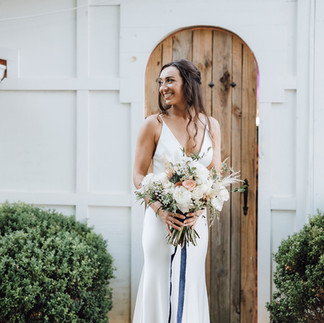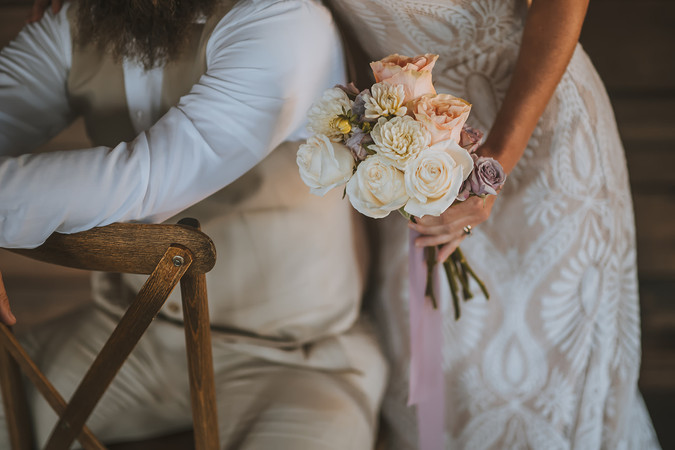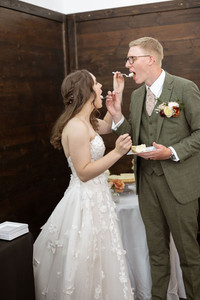Everything You Need to Know - Wedding Floral Lingo Edition
- hellothefloralpop
- Aug 5, 2024
- 4 min read
Updated: Dec 28, 2024
There is a lot to know about wedding florals, and The Floral Pop is here to help! Hi! It’s me, Maegan, with The Floral Pop, a local Nashville florist and wedding vendor! I absolutely love supporting couples in choosing the right florals to make their dream weddings come true, and trust me; there are no dumb questions.
Choosing your wedding florals can be challenging, especially with so many different opinions on social media and from friends and family. When browsing for inspiration on spaces like Pinterest and TikTok, it can be taxing to articulate exactly what you want to your florist. Being able to clearly define and understand the different options for wedding florals is especially important when choosing floral designs with your florist.
This is why The Floral Pop created our list of 15 common wedding floral lingo terms that you need to know as you begin planning your wedding. Everything You Need to Know - Wedding Floral Lingo Edition:
Bridal Bouquet
A collection of florals and greenery for a bride to carry down the aisle to accentuate their wedding dress and decor. These are often joined by similarly designed bridesmaid’s bouquets.
Altar Flowers
Flowers designed to match the wedding decor and color scheme are placed at the front of the wedding ceremony venue near where the couple will stand throughout the ceremony. Currently, the most popular floral designs for the altar flowers are an arch, a broken arch (an arch that is broken in half, typically slightly asymmetrical), or a grounded floral meadow (a semicircle of floral designs to sit on the ground around the couple and officiant).
Aisle Marker
Smaller flower arrangements, candles, or greenery are displayed by each chair row or pew along the aisle leading to the altar. These can be used in every row or at various intervals, such as every other row.

Aisle Runner
A continuous string of greenery and florals aligning the sides of the aisle leading to the altar.

Cascade Bouquet
A traditional bouquet design showcases florals that mimic a waterfall. The flowers are primarily bunched at the top and then designed to slowly fall over the side of the bouquet, getting smaller and smaller as they go.

Toss Bouquet
A more petite bouquet designed to be tossed by the bride during the wedding reception. Brides typically either have a bouquet made explicitly for the toss or toss a bridesmaid's bouquet.
Nosegay
A petite bouquet, typically smaller than the bridesmaids' bouquets, is typically given to mothers and/or grandmothers in place of a wrist corsage.
Boutonniere
A few small flowers and greenery with an attached pin to be worn on a jacket are normally designed for the groom, groomsman, officiant, fathers of the bride and groom, ring bearer, and grandfathers of the couple.
Wrist Corsage
A small band, bracelet, or cuff with florals attached to wear on the wrist.
Pocket Boutonnière
Pocket boutonnieres have been rising in popularity over the last year. This floral design is made to fit down in the pocket of a suit coat or tux in the place of a pocket square. It is a step up from a traditional boutonnière.
Compote Arrangement
A floral arrangement designed within a compote bowl or dish. This design style is often used as table centerpieces, on the bar, or on the welcome table. Depending on their purpose, they can come in various sizes, and the compote usually matches the decor scheme.
Garland
A length of greenery or florals used as a continuous runner down a long farmhouse-style table. Some garlands are full and heavy with greenery, while others are light and airy. In most cases, brides will pair garland with bud vases of flowers and/or candles to decorate the reception tables.
Ceremonial Flowers
Many different religions and cultures have ceremonial flowers as a part of their wedding rituals. These often have a significant meaning to their culture and play a prominent role in the marriage ceremony.

Now that you know and understand these terms, you are more prepared to dive into your wedding planning and your meetings with florists. It’s essential you find a florist who you trust and who you know can bring your vision to life. Wedding florists have their own artistic abilities and bring their personal touch to your wedding florals. This is why trust in your florist is so crucial to your end goal—for your dream wedding florals to come to life.
After you have found a florist you trust, it is crucial to understand your budget and how to choose which floral pieces to prioritize based on your budget. Your florist can lead you in the right direction after you provide your dream floral inspiration and your budget. For example, bridal bouquets are always one of the top priorities, along with any wedding party florals, including boutonnieres and bridesmaid bouquets. Another expensive part of your wedding florals will be the wedding reception florals, depending on many factors, such as venue, proposed head count, and style of floral designs desired.
Lastly, with this in mind, I recommend allowing your florist creative freedom when assembling, choosing flower types, and designing. This trust allows you not just to copy other weddings from Pinterest but to have unique pieces designed just for your wedding. To set your wedding apart from others, select fun and exciting statement designs that will be something you and your guests will enjoy and remember forever!
When I say there are NO dumb questions, I mean it. What are your questions about wedding florals, and how to choose the ones that are best for you and your special day? Please reach out to me, Maegan, at The Floral Pop!!!
Photography by:
































































Comments